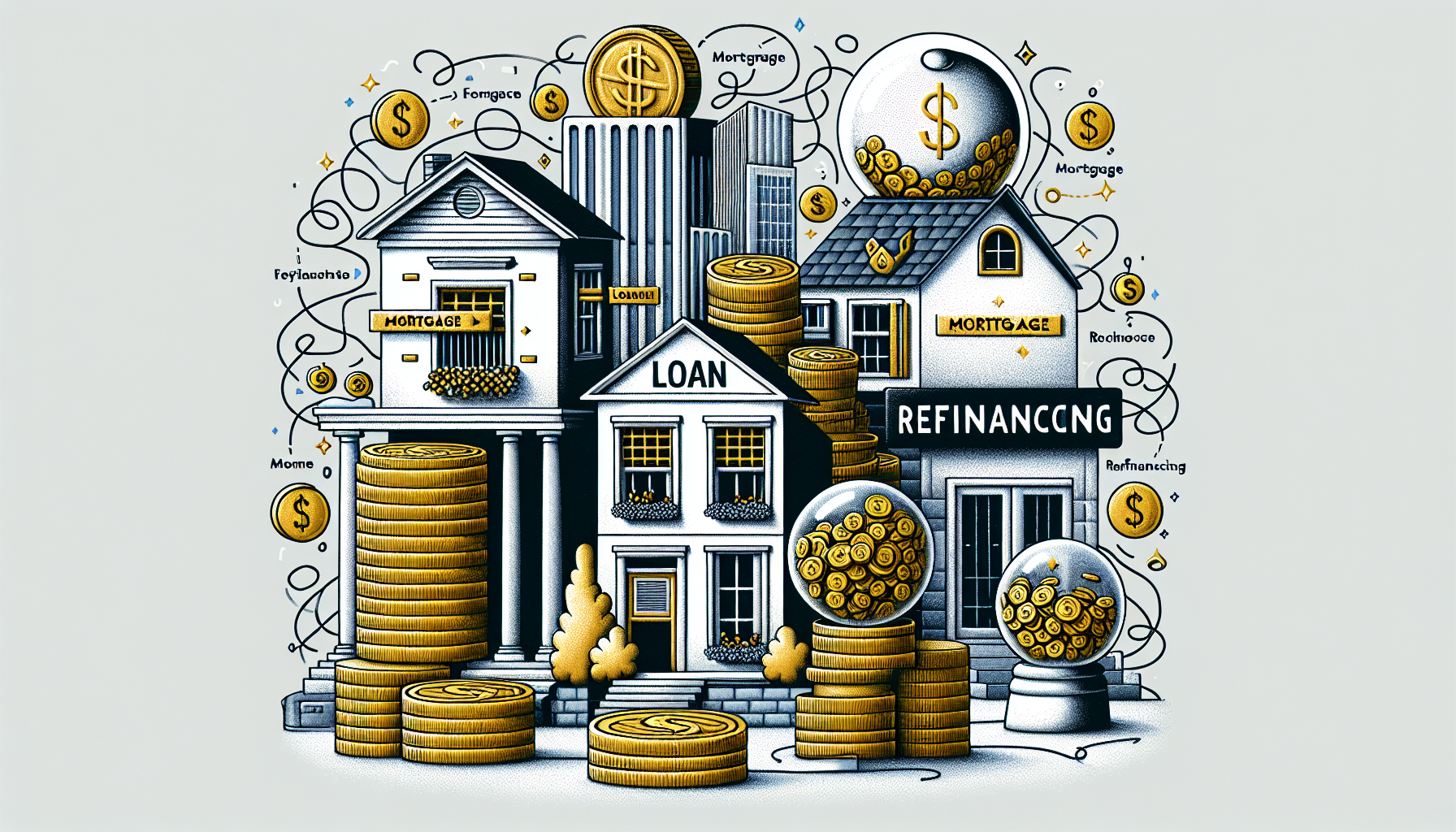
Are you trying to figure out how to buy your spouse out of a house? This direct guide cuts through the complexity, offering practical steps for assessing the home’s value, negotiating a fair price, handling the legalities, and managing the financial aspects. Your pathway to sole property ownership, particularly in cases of divorce or separation, begins here.
A house buyout in a divorce setting allows one party to purchase the other’s share of the property, offering benefits like children’s stability and simplified asset division, but requires a clear understanding of the property’s market value, the home equity, and each party’s property interest and reimbursement rights.
Determining a fair buyout price involves professional home appraisal and Comparative Market Analysis considering market trends, the home’s condition, and sales of similar properties, followed by calculating the equity amount to be paid.
Navigating financial and legal complexities is key for a successful house buyout. This includes exploring financing options such as refinancing or home equity loans, preparing a detailed buyout agreement, and consulting with legal professionals to ensure compliance and protect all parties’ interests.

You’ve probably heard the term “house buyout” thrown around in divorce discussions, but what does it actually mean? In essence, a house buyout involves one party purchasing the other’s share of a property, essentially obtaining full ownership. This might sound like a daunting process, but it’s a common method used during divorces to simplify the division of property, especially where the house is often the largest community asset in a marriage.
Why opt for a house buyout? One of the key benefits is that it can offer stability for children by preserving their home environment, mitigating some of the upheaval that divorce can bring. It also limits the contention over asset division in court, making the process a bit less stressful for everyone involved. The buyout process might seem complex at first, but with a clear understanding of its steps and requirements, you can navigate it successfully.
Think of a house buyout as a transfer of equity. One party purchases the other’s share of the property, effectively becoming the sole owner. In a divorce context, this can be achieved by one spouse compensating the other based on the home’s value, or by taking over their share of the mortgage. To buy out your ex, you’ll need to determine the value of their share and negotiate a fair settlement.
Completing a house buyout isn’t as simple as handing over a check and calling it a day. It’s a legal process that involves careful calculation, negotiation, and often, the assistance of real estate and legal professionals. But don’t let that intimidate you! With the right knowledge and guidance, you can successfully navigate a house buyout and secure a smooth transition during your divorce.
A house buyout comes with several benefits. One of these is the ability to maintain stability for children. A deferred sale of the home allows parents to keep the property jointly owned until a future determined time, minimizing disruptions for the children involved. Additionally, a house buyout can help you avoid the need to sell the property, allowing you to stay in the home without the disruption of moving or finding a new residence.
Moreover, a house buyout simplifies the process of asset division during a divorce, reducing the complexities typically encountered with dividing a property. Depending on whether the house is separate or community property, this can affect the amount of the payout. It’s also worth noting that selling a house comes with its own costs, like commission, closing costs, and capital gains tax. A buyout can save you from these additional expenses.

Before embarking on the buyout process, it’s crucial to determine the value of your home accurately. This ensures that the buyout price is fair and reasonable for both parties. It’s not just about how much you think your home is worth or how much you bought it for; it’s about the current market value, which can be influenced by various factors, including:
market trends
the condition of your property
location
size and layout
amenities
recent sales of similar properties in the area
Taking these factors into consideration will help you arrive at a realistic and fair value for your home.
To get a clear picture of your home’s value, you may need to enlist the help of a professional appraiser, who will assess your property and comparable sales to establish a fair market value. Additionally, you could also carry out a Comparative Market Analysis to utilize data from similar homes in your local area that have recently been sold.
One of the first steps in preparing for a house buyout is to get the property professionally appraised. A professional appraiser can provide an unbiased assessment of your home’s market value, ensuring that the buyout price is fair for both parties. They can evaluate various factors affecting market value, including the condition of your property and current market trends.
When engaging a professional appraiser, it’s important to inquire about their experience, compliance with professional standards, and the methodology used to determine the appraisal value. To minimize conflicts, both parties should be involved in choosing the appraiser, especially to address any issues if the appraisal comes out lower or higher than expected.
Alongside professional appraisal, another way to determine your home’s value is through a Comparative Market Analysis. This process involves comparing data from similar properties in your local area that have recently been sold. Factors considered in this analysis include:
Recent sales
Neighborhood quality
Home features
Property details
All of these factors contribute to an accurate valuation.
Having a clear understanding of your home’s market value is crucial when planning a house buyout. Whether you opt for a professional appraisal, a Comparative Market Analysis, or both, the goal is to ensure that the buyout price reflects the true value of your property.

Once you’ve determined your home’s value, the next step is to calculate the buyout amount. This involves determining the equity in your home and dividing it fairly between the parties involved. Equity is the difference between your home’s appraised value and any remaining mortgage obligations.
The buyout amount is then determined by adding the ex-spouse’s share of equity to the remaining mortgage balance. This can be paid in full in cash or by refinancing the mortgage and using the equity. It’s important to remember that the buyout amount isn’t just about how much the house is worth, but also about how much equity each party has in the property.
The term ‘equity’ might seem complex, but it’s actually quite straightforward. In real estate terms, equity is defined as the market value of a home minus any mortgages or other encumbrances on the property. You can calculate your home’s equity by determining its current market value and then subtracting any outstanding mortgage or loan balances.
For instance, if your property is valued at $1,000,000 with a mortgage balance of $500,000, the resulting equity would be $500,000. This equity is then divided between the parties involved in the buyout according to their agreement or legal entitlement.
Dividing equity fairly and accurately is a crucial aspect of the house buyout process, especially in a community property state.
Preparing a fair buyout agreement necessitates a precise evaluation of the home’s value and the careful consideration of each spouse’s community share and reimbursement rights. In place of a cash payment for a buyout, couples may consider trading other marital assets of similar value, such as bank accounts or retirement accounts. This approach can also benefit the selling spouse by providing them with assets that may be more suitable for their financial situation.

Financing a house buyout can be one of the most challenging aspects of the process. It’s important to carefully evaluate all available financial options to facilitate a smooth transaction. Common financing options include refinancing the mortgage, taking out a home equity loan, or obtaining a personal loan.
Payment of the buyout alone does not solve the problem of title to the home. The selling spouse’s name must be removed from the title and any mortgage as a part of the buyout process. These terms must be included in the agreement for a buyout. If the provisions regarding the removal of a spouse’s name from title and the mortgage is not included in the buyout agreement (or court order), a refinancing agent may not approve the loan for the buyout.
Refinancing the mortgage is a popular option for funding a house buyout, as it allows the use of home equity to purchase an ex-spouse’s share and releases them from the mortgage obligation. On the other hand, home equity loans and lines of credit (HELOCs) offer a way to access accumulated equity within the home to finance a buyout. The latter method does not allow for the removal of the selling spouse’s name from the mortgage.
Refinancing the mortgage involves replacing the existing mortgage with a new one, which not only ensures the property is under one spouse’s name but can also provide the funds needed to pay the other spouse. This method can be advantageous as it allows the buying spouse to tap into the home equity to finance the buyout.
However, refinancing comes with its own challenges. Some of these challenges include:
The risk of not qualifying for a new loan or receiving a higher interest rate
Eligibility for refinancing is dependent on the spouse’s individual income and assets
Refinancing must account for any support payments in the qualification process
Another option for financing a house buyout is to use a home equity loan or line of credit (HELOC). These financial tools allow you to borrow against the equity you’ve built up in your home. Home equity loans offer a lump sum based on your equity, while HELOCs provide a flexible line of credit.
Although home equity loans and HELOCs can be a good option, they also come with risks. For instance, if you fail to make the repayments, you could potentially lose your home. Therefore, it’s essential to carefully consider your financial situation before opting for this method.
If mortgage refinancing or home equity products aren’t viable options, you might look into personal loans and other funding options. Personal loans are advantageous for financing a house buyout as they are unsecured, do not tap into home equity, and can be obtained quickly.
Other alternative funding options may include:
Borrowing from retirement savings
New mortgages
Cash-out refinance
Reverse mortgages
Private or peer-to-peer lending
It’s important to carefully consider each option, taking into account the interest rates, repayment terms, and potential impact on your financial health.

Now that you’ve got a grasp on the financial aspects of a house buyout, let’s delve into the legal considerations. One key component of a house buyout is the buyout agreement. This formal document should clearly outline the buyout terms, such as the amount, payment schedule, and conditions for any future sale.
When drafting a buyout agreement, it’s crucial to include clear details of:
The parties involved
The assets being transferred
The value of these assets
Any outstanding liabilities
The timeline for completion
The mean to remove the selling spouse’s name from both the title and mortgage, if applicable.
This helps to prevent future misunderstandings and protects all parties involved.
The buyout agreement is the backbone of a successful house buyout. It stipulates the terms of the transaction, protecting the interests of all parties and preventing future disputes. A well-crafted agreement should clearly outline each party’s responsibilities, ownership rights, and the timeline for the transaction.
To prepare a comprehensive buyout agreement, it’s important to:
Define the parties involved
Articulate the roles and obligations of each party
Understand the legal implications of the agreement
Review the agreement thoroughly to ensure accuracy and legal compliance, often requiring legal expertise for advice and guidance.
Legal considerations can be complex, and that’s why it’s valuable to consult with legal professionals. They can ensure that the division of equity during the house buyout is handled fairly and in accordance with state laws. Legal professionals, such as real estate lawyers or divorce attorneys, can help in preparing thorough buyout agreements that reflect the intricacies and legality of the transaction.
Getting expert legal advice is crucial in preventing future legal disputes by ensuring the buyout agreement covers all necessary provisions and considerations. The review and finalization of the buyout agreement by a legal expert ensures compliance with relevant laws, providing a layer of protection for all parties involved in the house buyout process.
While the divorce house buyout process can provide a clear path through the often-murky waters of divorce, it’s not without its potential challenges. These can range from disagreements over property value to difficulties securing financing. However, with effective communication, negotiation, and exploring alternative financing options, these hurdles can often be overcome. Utilizing a house buyout divorce calculator can be a helpful tool in this process.
Remember, the goal of a house buyout is to reach an agreement that is fair and beneficial to both parties. This requires collaboration and compromise. If a direct buyout is not feasible, alternatives like negotiating the price down, being open to mediation, or considering other options if financing is unavailable can be explored.
One common challenge during a house buyout is disagreements over property value. This can be due to varying perceptions of the home’s worth or emotional attachments to the property. To address this, both parties can hire their own appraisers and consider splitting the difference in valuations as a potential solution.
When recent comparable sales are scarce, such as in low-volume or rural markets, the judgment of a professional appraiser becomes crucial for an objective evaluation that can assist in resolving property value disputes. Remember, the goal is to establish a fair market value that both parties can agree on.
Securing financing for a house buyout can sometimes be a challenge. This can be due to a tight lending market, a lower individual income, or a less-than-stellar credit score. If you’re having trouble securing financing, it’s worth exploring alternative lenders or negotiating new payment terms with your current mortgage holder.
It’s also important to remember that there are other potential solutions for a former spouse. For instance, mortgage assumption is an option where one spouse takes on the full responsibility for the mortgage payments, which can be a less risky solution than refinancing. Though it may feel overwhelming, remember that there are always options and solutions available to you.
Disputes over the character of the home can also arise during a house buyout, particularly in a community property state. This can be especially contentious if the house is considered separate property or community property, which can affect the amount of the payout. One possible scenario, under California law, is if the house originally belongs to one spouse but then was deeded to both spouses during the marriage, it becomes community property.
These disputes require clear communication and legal guidance to resolve. It’s important to consult with a legal professional to understand your rights and obligations under the law. Despite the challenges, remember that the goal is to reach a fair and equitable agreement that respects the rights and interests of both parties.
In conclusion, navigating a house buyout during a divorce can be a complex process, but it doesn’t have to be a daunting one. By understanding the different stages of the process, from determining your home’s value to calculating the buyout amount, and considering various financing options, you can make informed decisions that protect your interests and contribute to a smoother transition. Remember, it’s crucial to seek professional advice and guidance when needed, and always strive for open and clear communication throughout the process.
A house buyout occurs when one party in a divorce purchases the other’s share of the property, gaining full ownership.
A home’s value for a buyout is determined through a professional appraisal and a Comparative Market Analysis. These methods help establish an accurate valuation and reduce the likelihood of any disputes.
The buyout amount is calculated based on the home’s equity, which is the difference between its appraised value and any remaining mortgage obligations, and is then divided fairly between the parties involved.
Consider refinancing the mortgage, taking out a home equity loan or line of credit, or obtaining a personal loan for financing a house buyout. These are common financing options for this purpose.
Comments
No Responses to “Navigating Your Way Through a House Buyout in a Divorce: How to Buy Someone Out of a House”
No comments yet.